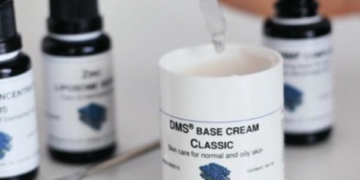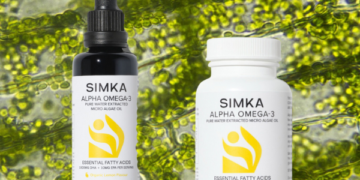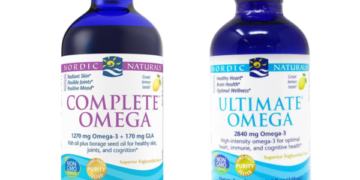Eczema (atopic dermatitis) is a chronic inflammatory skin disorder whereby the skin’s first line of defence is negatively stimulated by internal triggers or external allergens. Individuals presenting with eczema are genetically predisposed to the condition and may also be deficient in the gene for making filaggrin, an essential protein for skin hydration and a healthy skin barrier. Eczema appears in many forms, it can be scaly, broken, patchy, itchy, irritated, dry, weepy or inflamed skin. Eczema sufferers bear the risk of broken skin becoming infected. There is no cure for eczema, however symptoms can be effectively controlled and managed via a range of bespoke dermaviduals solutions.
Dehydrated skin with a high TEWL is very characteristic of eczematic skin. Seasonal weather changes can also play havoc with this skin condition. The result is a barrier disorder that leaves the skin in a more vulnerable state with an increased susceptibility for penetration of external substances such as microorganisms (fungi, bacteria and viruses).10 The stratum corneum exhibits a deficiency in ceramide-1 (linoleic acid), a main barrier component of the skin.10 Understanding the synthesis pathway for essential fatty acids, the presence of dermatitis serves as an indicator of an enzyme defect that inhibits the transformation of linoleic acid into gamma-linoleic acid (refer to our article on “Essential Fatty Acids”).10 Given that dermatitis attacks are cycling, using the intermittent times when flare-up is minimal is an ideal time to use preventative measures in order to mitigate continuous deterioration of the skin barrier. Moreover, when correct corneotherapy actives are used, they may help support the skin by increasing its barrier function. The good news is that this could easily reduce the requirement for more drug intervention.
Common Triggers
- food triggers:
- cows milk, eggs, wheat, nuts, seafood, soy,
- Fabrics
- wool, nylon, polyester, clothes with rough threads
- Scents
- citrus, lavender, vanila, sandalwood, eucalyptus, peppermint, cinnamon, rose, synthetic sents
- Stress
- Airborne allergens
- Hormonal changes
- Extreme temperature changes
- Prolonged exposure to water
How we help manage eczema
Most long term eczema suffers we have helped, prior to coming to us, have tried everything and overtime have found nothing has helps and they are addicted to steroids for treatment. At CleanSkins we pair back everything including the steroids which can take some time for the skin to adjust. It is likely that clients will go through an adjustment phase or a period of steroid withdrawals. The dermaviduals range has suitable products for eczema and along with white LED to help manage any adjustment phase and/or future break outs that will occur with a long term skin condition such as eczema.

dermaviduals
Please note: we do not sell the dermaviduals range directly online. Please call reception and a CleanSkins skin expert will be in touch …
Read more
White Light LED
How it works. LED Light therapy is the use of light to stimulate a cellular response within our cells. Cells in the body contain receptors that …
Read more
Simka Alpha Omega's
CLEAN, SAFE, PURE SIMKA Alpha Omega-3 is next generation plant-based omega-3, perfectly balanced to support your skin health and nutrition. …
Read more
Nordic Naturals Omega's
Why we chose Nordic Naturals Omegas! - because achieving great skin requires a holistic approach! Most problematic skin conditions are not …
Read more